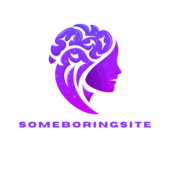
Exploring the world of literature unveils a treasure trove of linguistic marvels, where words dance in paradoxical harmony. The paradox literary device that defies conventional logic, offers a glimpse into the artful play of contradictions within a narrative. In my journey through the realm of literary analysis, I’ve encountered the paradox as a powerful tool wielded by writers to provoke thought, challenge perceptions, and create depth in storytelling.
Within the fabric of language, paradoxes serve as enigmatic puzzles that beckon readers to unravel their hidden meanings. As I delve into the nuances of this intriguing literary device, I invite you to join me in deciphering the intricate web of paradoxes that enrich the tapestry of literature. Together, we’ll unravel the mysteries, embrace the contradictions, and appreciate the beauty of paradoxes woven into the fabric of storytelling.
Paradox Literary Device
Definition and Origins
Exploring the paradox literary device uncovers its essence as a profound tool in literature. Paradoxes, by nature, present ideas that seem contradictory at first but reveal deeper truths upon reflection. They originated from Greek “paradoxon,” meaning contrary to expectation, setting the stage for their usage in literary works. As I delve into this concept, I unravel the historical roots that highlight the evolution and significance of paradoxes in storytelling.
Examples in Literature
Encountering paradox literary device showcases the artistry of writers in conveying complex ideas with simplicity. In works like Shakespeare’s “Macbeth,” the line “Fair is foul, and foul is fair” encapsulates the essence of paradox by intertwining seemingly opposing concepts. Similarly, in George Orwell’s “Animal Farm,” the phrase “All animals are equal, but some animals are more equal than others” exemplifies the thought-provoking nature of paradoxes. These examples not only illustrate the creativity of authors but also emphasize how paradoxes enrich narratives by challenging readers’ perceptions and stimulating contemplation.
The Role of Paradox in Enhancing Narrative
Building Complexity in Characters
 When it comes to constructing compelling characters, incorporating paradoxes can be a game-changer. By infusing characters with contradictory traits or beliefs, writers can add layers of complexity that mirror the intricacies of real-life personalities. For instance, a character who is both fiercely independent and deeply reliant on others can create a fascinating dynamic that captures readers’ interest.
When it comes to constructing compelling characters, incorporating paradoxes can be a game-changer. By infusing characters with contradictory traits or beliefs, writers can add layers of complexity that mirror the intricacies of real-life personalities. For instance, a character who is both fiercely independent and deeply reliant on others can create a fascinating dynamic that captures readers’ interest.
Advancing Plot Through Contradiction
Contradictions inherent in paradoxes can serve as powerful tools for advancing the plot of a story. When characters face situations where the expected outcome defies logic due to a paradoxical element, it propels the narrative forward by introducing tension and suspense. For example, a plot twist based on a paradox can lead characters down unexpected paths, keeping readers engaged and eager to unravel the mysteries presented.
Famous Works Featuring Paradox
Shakespeare’s Use of Paradox
 In Shakespeare’s works, paradox literary device are skillfully woven to create depth and complexity in characters. Characters like Juliet, who speaks the famous line “Good night, good night! Parting is such sweet sorrow,” embody the essence of paradox by intertwining contradictory emotions of love and pain.
In Shakespeare’s works, paradox literary device are skillfully woven to create depth and complexity in characters. Characters like Juliet, who speaks the famous line “Good night, good night! Parting is such sweet sorrow,” embody the essence of paradox by intertwining contradictory emotions of love and pain.
Modern Literature and Paradox
In modern literature, authors continue to harness the power of paradox to intrigue and challenge readers. Novels like “1984” by George Orwell utilize paradoxes to depict the oppressive nature of a dystopian society where “freedom is slavery” and “ignorance is strength.” By juxtaposing contradictory concepts, modern authors provoke deeper contemplation and draw attention to societal issues.
Analyzing the Impact of Paradox on Readers
Emotional Engagement
 paradox literary device evoke a range of emotions that captivate readers’ attention. By presenting contradictory ideas or situations, paradoxes create a sense of intrigue and curiosity. They challenge readers to delve deeper into the text, searching for resolutions to the apparent contradictions. This emotional engagement keeps readers invested in the story, fostering a connection with the characters and their complex inner struggles.
paradox literary device evoke a range of emotions that captivate readers’ attention. By presenting contradictory ideas or situations, paradoxes create a sense of intrigue and curiosity. They challenge readers to delve deeper into the text, searching for resolutions to the apparent contradictions. This emotional engagement keeps readers invested in the story, fostering a connection with the characters and their complex inner struggles.
Intellectual Stimulation
The use of paradox literary device acts as a catalyst for intellectual stimulation among readers. It prompts them to think critically and reflect on the deeper layers of meaning embedded within the text. Paradoxes compel readers to question conventional wisdom and explore the complexities of human nature, morality, and societal norms.
